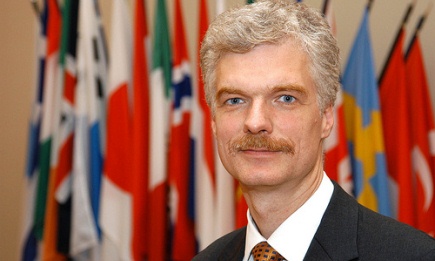Top jobs outnumber top talents

It was the day of the OECD’s yearly treat of highly refineddata: ‘Education at a glance’. “If
In the recent ‘Education at a glance 2012’ the OECD roughlyobserves two key changes. First: the continued rise of theknowledge economy, with its powerful new incentives for people tobuild their skills through education. Second: the explosive growthof higher education worldwide, which has increased opportunitiesfor millions and is expanding the global talent pool ofhighly-educated individuals.
No country escapes the economic downturn
As expected the OECD’s analysis found that no group or country,no matter how well-educated, is totally immune from the effects ofa worldwide economic downturn. At the same time, the data show theremarkable importance of having a higher level of education for theeconomy, for the labour market and for the society as a whole.
At the most basic level, it’s clear that having more educationhelped people to keep or change their jobs during the recession.Between the start of the downturn in 2008 and 2010, overallOECD-unemployment rates jumped from an already high 8.8% to 12.5%for people without an upper secondary education.
By contrast, unemployment rates for people with higher educationremained much lower, rising from 3.3% to 4.7% in this same period.Its impact on labour markets is hugely different. For all OECDcountries together, the unemployment rate in 2010 was roughlyone-third less for men with higher education than for men withupper secondary education; for women it was two-fifths less.
Crisis increases earnings premium
The gaps in earnings between people with higher education andthose with lower levels of education not only remained substantialduring the global recession, but grew even wider. In 2008, aman with higher education could expect to earn 58% more than hiscounterpart with no more than an upper secondary education, onaverage across OECD countries.
By 2010, this premium increased to 67%. Similarly, in 2008,women with higher education had an average earnings premium of 54%compared to their upper secondary-educated peers. By 2010, thispremium grew to 59%. This is no longer just a phenomenon of theindustrialised world. Indeed, the country with the greatestearnings premium on higher education is now Brazil, where thatadvantage is about three times as high as on average across OECDcountries.
The ‘earning premium’ holds true not only for knowledge workersindividually, but also feeds the national coffers. In practicallyall OECD countries the public benefits per educated person, greatlyoutnumber the costs.

Young and hungry for knowledge
The hunger for education is also mirrored in the educationalaspirations of much younger people in the emerging economies.Brazil, Indonesia and the Russian Federation are now among the tencountries with the highest proportion of 15-year-olds aspiring tohighly-skilled careers.
These figures suggest that although the downturn certainly had asweeping impact, especially for people with lower levels ofeducation, the impact of the broader changes occurring on theglobal education and economic landscapes is even larger.
Steep increase in number of HE-degrees
Over the past decade across OECD countries, the percentage ofadults who have attained higher education has grown at a rapidrate, from 22% in 2000 to 31% in 2010. Yet despite this burgeoningsupply of well-educated individuals – as well as the falteringmarket conditions from 2008 forward – most people with highereducation have continued to reap very good economic benefits.
This signals that, overall, the demand for highly-skilledemployees to meet the needs of the knowledge economy inOECD countries has continued to grow, even during the crisis.Apparently and surpisingly, even during the economic crisis, thepie itself has been growing.
Meest Gelezen
Vrouwen houden universiteit draaiende, maar krijgen daarvoor geen waardering
Hbo-docent wil wel rolmodel zijn, maar niet eigen moreel kompas opdringen
Wederom intimidatie van journalisten door universiteit, nu in Delft
‘Waarom het nu niet lukt om medezeggenschap in hbo te versterken’
‘Sluijsmans et al. slaan de plank volledig mis’

